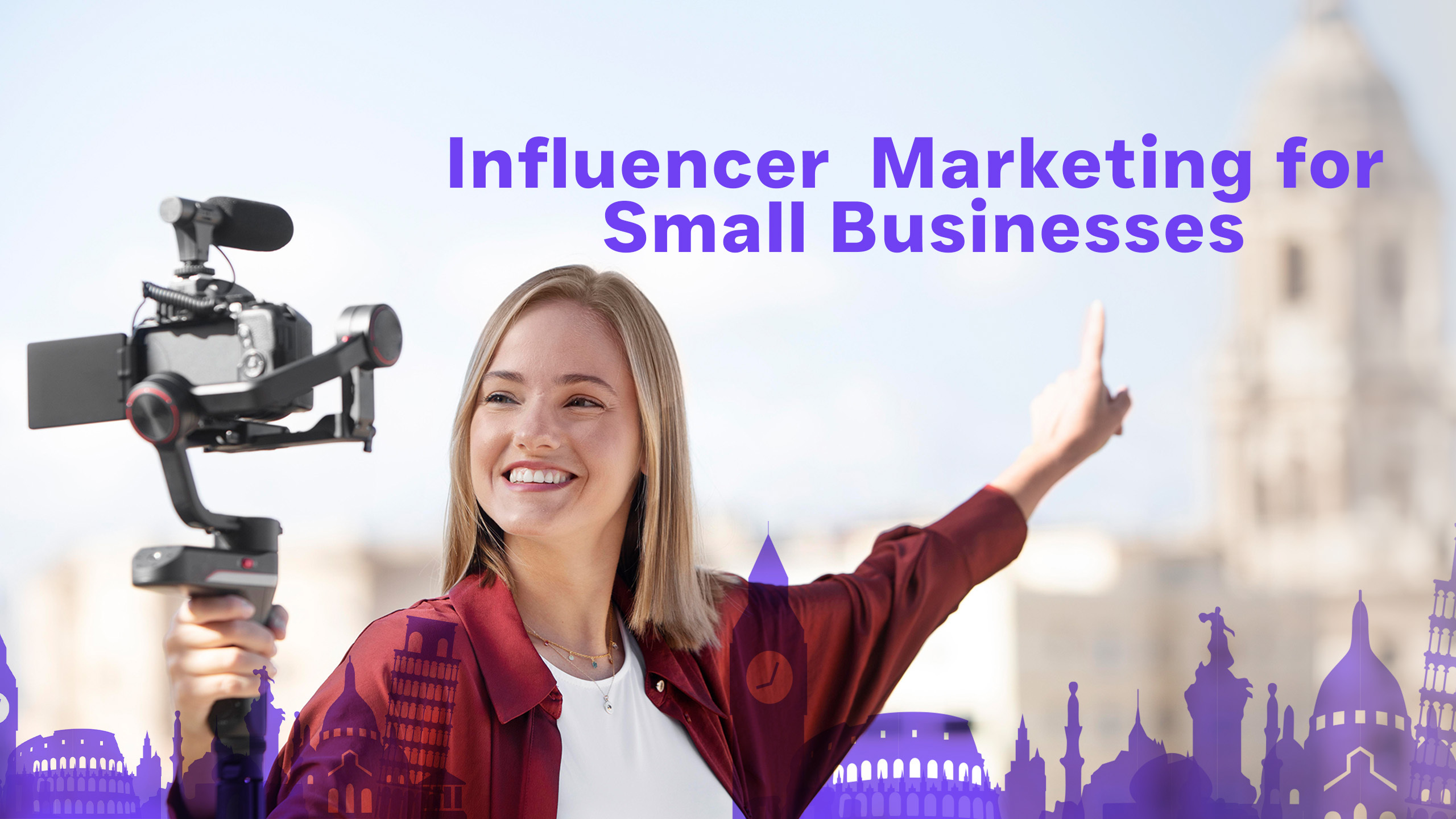In this guide to influencer marketing for small business, you’ll learn how to find the right creators, run affordable campaigns, and track ROI for maximum growth.
Introduction
Influencer marketing is one of the fastest-growing digital strategies, valued at $24 billion globally (Statista, 2025). For small businesses, it’s no longer optional it’s essential. Influencers help brands reach audiences authentically and build trust where traditional ads fall short.
In 2025, small businesses that leverage influencer marketing gain an edge in visibility and credibility. It’s a low-cost, high-trust channel that strengthens brand authority and helps even the smallest brands stand out online.

The Strategic Advantage: Why Influencer Marketing Matters
Influencer marketing isn’t just for big corporations it’s a growth catalyst for small businesses. By collaborating with creators who already have their audience’s trust, small brands can amplify reach and conversions affordably.
Gain authentic exposure: Go beyond traditional ads by using trusted voices.
Build brand awareness: Influencers act as amplifiers for your brand message.
Scalable strategy: Works for startups and small local businesses with limited budgets.
Finding Your Tribe: Identifying the Right Influencers
The secret to successful influencer marketing for small businesses lies in choosing the right partners, not the biggest names.
Focus on relevance, engagement, and shared values rather than just follower count.
Micro-Influencers: The Secret Weapon
Micro and nano-influencers often outperform large creators in engagement. They maintain close relationships with their followers, making them ideal for affordable influencer campaigns.
Micro and nano influencers have higher engagement rates.
They’re cost-effective and perfect for small business influencer marketing.
Use tools like Collabstr, Aspire.io, or Upfluence to find creators who match your niche.
Local Influencers: Building Community Trust
Local influencer marketing strategy is a game-changer for small businesses with a physical presence. Local creators can build familiarity and loyalty in your immediate area.
Engage influencers in your city or region to reach nearby audiences.
Encourage store visits, local awareness, and community-based recommendations.
Vetting Influencers: Before You Collaborate
Authenticity matters more than numbers. Before partnering, evaluate each influencer’s tone, values, and follower engagement.
Look for genuine engagement (comments, shares, saves).
Ensure visual and ethical alignment with your brand.
Choose influencers who share similar values or causes.
Crafting Impactful Campaigns: Strategy, Budget & Content
A successful influencer marketing strategy for small business starts with clear goals, measurable KPIs, and well-planned budgets.
Defining Goals and Measuring Success
Set goals that align with your marketing funnel brand awareness, traffic, or conversions.
Define KPIs like engagement rate, CTR, CPA, or ROAS.
Track impressions, reach, and branded search growth.
Use UTM links or affiliate codes for precise ROI tracking.
Budgeting for Affordable Influencer Campaigns
Influencer marketing can fit nearly any budget when managed strategically.
Use flexible payment models: flat fees, affiliate links, or product exchanges.
Match budget to influencer tier (nano, micro, macro).
Collaborate on creative ideas that offer mutual value.
Creating Authentic Content
Let influencers create content that feels native to their audience while staying true to your brand message.
Use short-form videos (Reels, TikToks) for awareness.
Leverage YouTube or blogs for tutorials and deep storytelling.
Repurpose influencer content for ads and newsletters.
Legalities and Logistics
Transparency and structure protect your brand and the influencer relationship.
FTC Disclosure Rules
Always follow FTC or regional disclosure guidelines for sponsored content.
Require hashtags like #ad, #sponsored, or #gifted for transparency.
Educate influencers on compliance—it builds credibility.
Contracts and Agreements
Always sign an agreement, even for gifted collaborations.
Include scope, timeline, content rights, and payment details.
Define content review and revision terms before launch.
Measuring ROI & Scaling Your Program
The success of small business influencer marketing lies in measurement. Tracking key performance metrics allows you to see what works and where to improve.
Evaluate engagement, traffic, and conversions.
Repurpose influencer-generated content across paid ads.
Expand partnerships with high-performing creators.
FAQ
Yes.
With strong ROI and low entry costs, it’s one of the most effective ways for small businesses to grow visibility and trust.
Micro-influencers charge between $100–$500 per post, but many are open to gifted or affiliate-based collaborations.
Micro-influencers: 10k–100k followers, steady engagement.
Nano-influencers: Under 10k followers but extremely loyal, local audiences.
Use influencer discovery platforms like Collabstr or Aspire.io, search niche hashtags on Instagram, and engage with creators already mentioning your products or region.
Ready to Grow with Influencer Marketing?
Start small, stay authentic, and measure everything.
Influencer marketing is the new word-of-mouth for the digital age.




